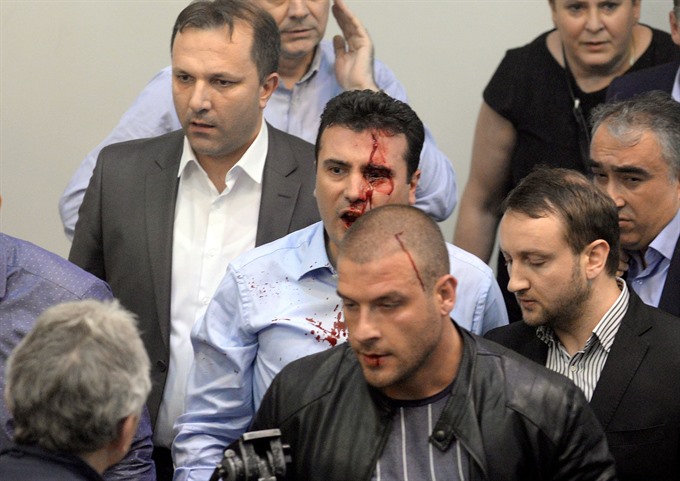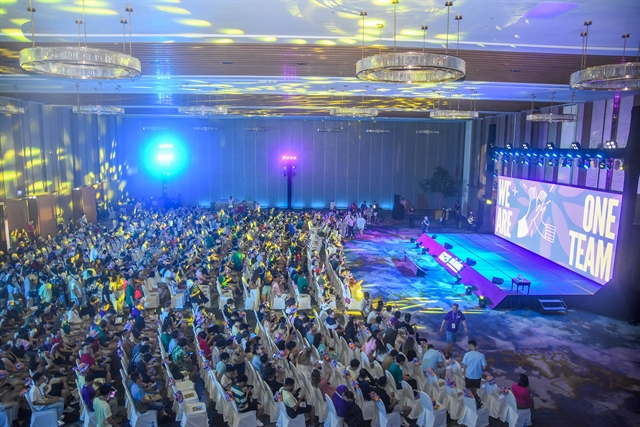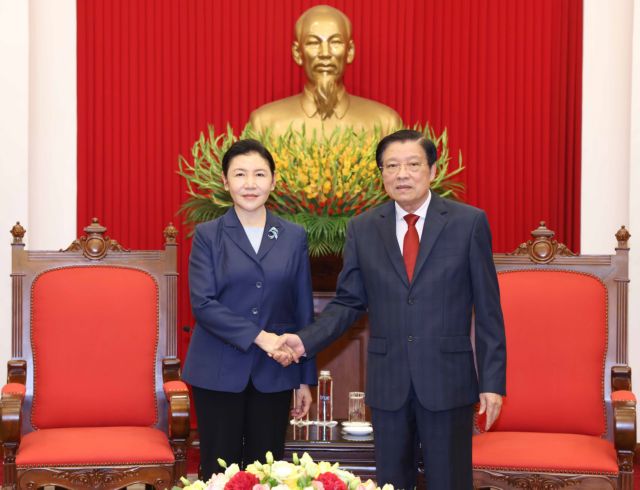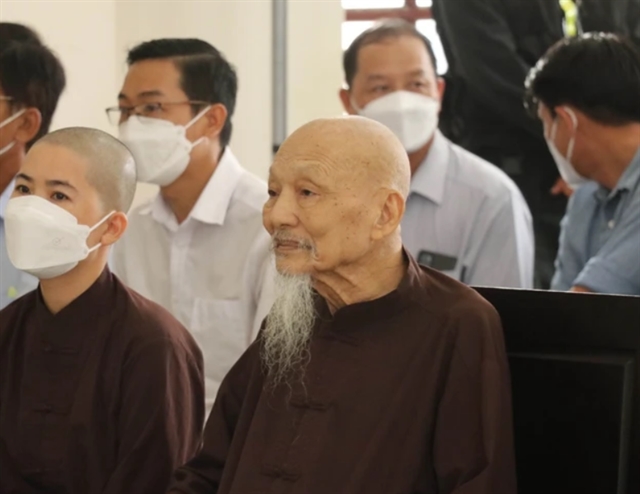

Demonstrators stormed Macedonia's parliament on Thursday and attacked MPs, including the opposition leader, in protest against a vote for a new parliamentary speaker.
 |
| Opposition Social Democrats leader Zoran Zaev bleeds after being injured when supporters of former leading party VMRO-DPMNE entered the parliament following an allegedly unfair vote for a parliamentary speaker in Skopje on April 27, 2017. - AFP/VNA Photo |
SKOPJE — Demonstrators stormed Macedonia’s parliament Thursday and attacked MPs, including the opposition leader, in protest against a vote for a new parliamentary speaker.
Zoran Zaev, who leads the main opposition Social Democrats, was seen with blood on his face amid the chaos, while Interior Minister Agim Nuhiu told media that 10 deputies had been injured, as well as some police and journalists.
The violence erupted after around 100 nationalist protesters supporting the rival VMRO-DPMNE party entered parliament waving Macedonian flags and singing the national anthem.
An AFP photographer said he saw around a dozen masked men among the demonstrators, while footage showed chairs and tripods being thrown as fist fights broke out in the parliamentary press room.
"I condemn the attacks on MPs in Skopje in the strongest terms. Violence has NO place in Parliament. Democracy must run its course," said European Union Commissioner Johannes Hahn on Twitter.
The incident follows months of political deadlock in the Balkan country, where demonstrators have been holding nightly rallies in the capital since an inconclusive December election.
They oppose a proposed coalition between Zaev’s Social Democrats (SDSM) and ethnic Albanians, which they perceive as a threat to national unity.
According to local media, Thursday’s incident broke out after the SDSM and Albanian parties voted in a new parliamentary speaker although the former speaker had closed the day’s session.
Their chosen speaker, Talat Xhaferi, is ethnic Albanian.
The EU later said it took "positive note" of Xhaferi’s election.
Call for calm
A few hours after the protesters entered parliament, police took control of the building but around 2,000 to 3,000 protesters remained outside.
"I am calling for tensions to be calmed and for non-violence," said President Gjorge Ivanov in a televised speech, inviting political party leaders to his office on Friday to discuss the situation.
"No one from abroad will solve our problems," he said.
For a decade until last year, Macedonia was ruled by the conservative VMRO-DPMNE and its leader Nikola Gruevski.
December’s election saw the party secure 51 seats in the 120-seat parliament – or two more than the SDSM, but the conservatives failed to reach a deal with kingmaking Albanian parties.
Although Zaev then reached an agreement with the Albanian groups, Ivanov refused to give him a mandate to form a government.
An ally of Gruevski, the president expressed concern over the controversial demand of Albanian parties that Albanian be made an official language across Macedonia.
Critics of the demand fear it could lead to the break-up of the small country of around two million people, about a quarter of whom are ethnic Albanians.
Following a seven-month ethnic Albanian insurgency in 2001 that left more than 100 people dead, a peace accord was reached providing more rights for the minority.
’Alarming’
The EU and the United States have urged Ivanov to reverse his decision and grant Zaev a mandate.
Macedonia’s opposition has also warned its conservative rivals that they are playing with fire by using the ethnic card in a bid to stay in power.
December’s vote was supposed to end two years of political upheaval, sparked by a huge wiretapping scandal, but it has only served to deepen the crisis in Macedonia, which aspires to join both NATO and the EU.
Both the SDSM and VMRO-DPMNE blamed each other for provoking tensions after Thursday’s violence.
A spokesman for the human rights organisation Council of Europe said the incident was "alarming," while Albanian Prime Minister Edi Rama expressed concern over the "really dramatic" situation.
Macedonia criticised Albania earlier this month for "open interference" with its internal politics. — AFP









